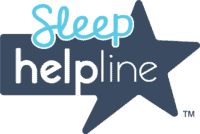Supporters mean everything! How can people with narcolepsy and their loved ones foster communication and mutual support? Audience members and special guests Lauren Thomas and Anne Taylor share their insights in Friends + Family + Narcolepsy.
The Narcolepsy Nerd Alert series invites listeners to dive deeper into specific topics relevant to living with narcolepsy. To explore more topics related to living with narcolepsy, visit our Narcolepsy Nerd Alert page and check out corresponding toolkits available to download for free.





